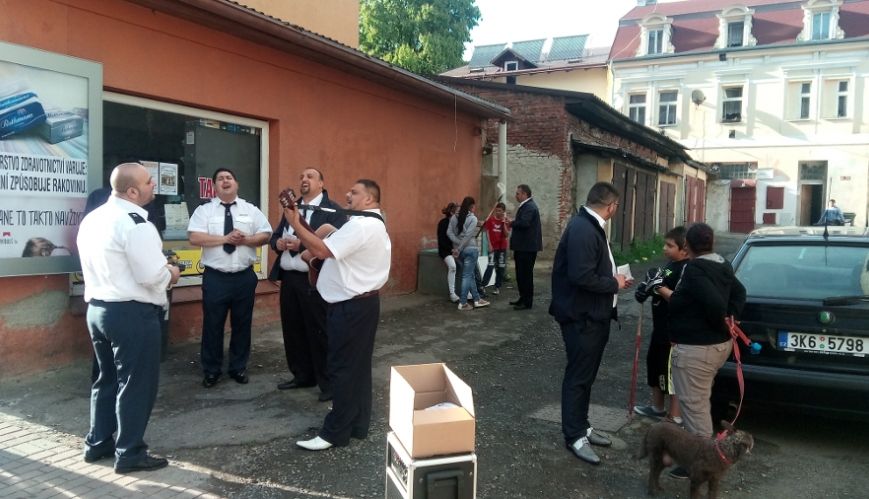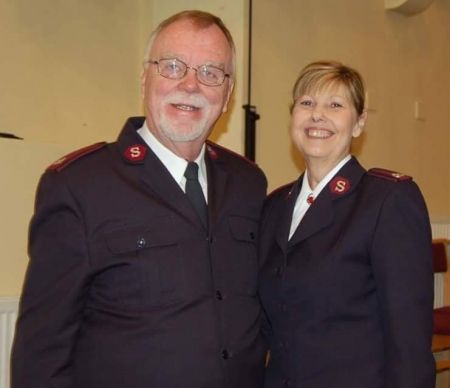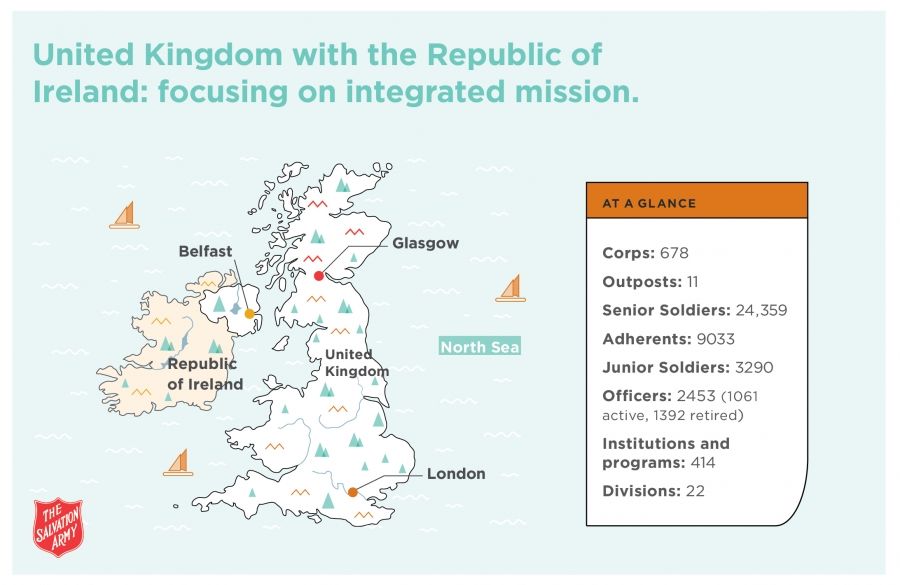United Kingdom with the Republic of Ireland: focusing on integrated mission

United Kingdom with the Republic of Ireland: focusing on integrated mission
A team of Roma Salvation Army soldiers from the UK went to the Czech Republic in May to visit Roma in prisons, social housing estates, and public areas to preach the gospel and draw people to Christ.
Under the “Fit for Mission” initiative, the United Kingdom with the Republic of Ireland territory (UKI) aims to increase the effectiveness of its God-given mission of “saving souls, growing saints and serving suffering humanity”.
Support services and administration were recently restructured, with the aim to further improve resources for frontline works at corps and centres, as well as enhancing the support provided to officers and other key personnel.
The territory’s mission is shaped by key mission priorities known as T-I-D-E (transformation, integration, discipleship and effectiveness). A strong social services ministry includes services for the homeless, older people unable to live independently, and the long-term unemployed.

The anti-trafficking and modern slavery team continues to support victims, bringing freedom to the oppressed. Australian officers, Majors Jeff and Sue Winterburn (pictured right), are currently serving in the territory as corps officers.
History
The foundation of the territory dates from the earliest formation of The Salvation Army prior to the adoption of that title in 1878 when the founder, William Booth, took charge of a mission to the East End of London in July 1865.
Certain UK corps were first established as Christian Mission stations. Throughout the Army’s history its work in this geographical area has been organised in a variety of forms and territories, but before 1990 these were all part of International Headquarters administration.
However, on 1 November 1990, a restructuring occurred so that now the United Kingdom Territory is separate from International Headquarters and under a single command similar to that of the Army’s other territories.
 Impact
Impact
During a year in the UK and Republic of Ireland, the territory:
- Supports more than 2500 people back into employment.
- Helps reunite around 2000 families a year through its Family Tracing Unit.
- Serves around three million nourishing meals at Salvation Army community and residential centres to older people, people affected by homelessness, and young families.
- Attends 163 emergencies across the country via its Emergency Response Unit.
- Operates 62 residential Lifehouses across the territory for people experiencing homelessness, providing 3200 beds a night plus training and support to get back on their feet.
- Organises, on average, 414 parent and toddler clubs per week to enable children to play in safe environments and where parents meet with Salvation Army officers and other parents for support, with an average weekly attendance of 14,742.
Diverse Ministries
In recent years the UK has become increasingly diverse with people from different ethnicities and several continents choosing to make it their home. This diversity is increasingly reflected in corps.
Armed Forces
Ministry with the armed forces continues to strengthen through the provision of Salvation Army officers as chaplains. Since 2012, four officers have been seconded to serve, three with the Royal Air Force and a fourth, seconded in September 2015, to the British Army.
In a separate initiative, a new service was introduced at Falkirk, Scotland, to support ex-servicemen with emergency essentials such as food, heating, clothing and travel, and assistance with gaining employment.
Hadleigh Farm Estate
A key component of William Booth’s Darkest England scheme, Hadleigh Farm Estate celebrated 125 years in May 2016. It was originally set up as a Farm Colony, taking unemployed men from the cities and training them in agriculture and other work skills.
Today, Hadleigh Farm and Hadleigh Training Centre continue the work started by William Booth in helping unemployed or marginalised people to retrain and find employment.
Roma (Gypsy) Ministry
One significant group is comprised of Roma (Gypsy) people, predominately from the Czech and Slovak Republics.
There are now three thriving and growing corps.
Most Roma come to the UK for a better life for themselves and for more opportunities for their children. They also want to escape institutional and relentless racism, that their home countries barely recognise, but which is a daily reality for them.
Many also acknowledge that God has brought them to the UK, has called them, and changed them. Most of the Roma The Salvation Army minister to come from Slovakia or the Czech Republic, although there are also pockets of people from Poland, Hungary, Bulgaria and, occasionally, Romania.
In Kent, south-east England, there are three Roma corps fellowships – Margate, Chatham and Gravesend.
A fourth corps is being planted in Dover. “The vision of the ministry is to follow wherever God leads and to train disciples and equip people for ministry,” said Major Kathryn Blowers, who has been working with Roma since her return from serving in the Czech Republic in 2003.
“For some that will mean ministry as envoys or officers. For others it will mean a ministry to and among Roma, or returning to their home countries, or ministering to Anglo corps and among other nationalities.”